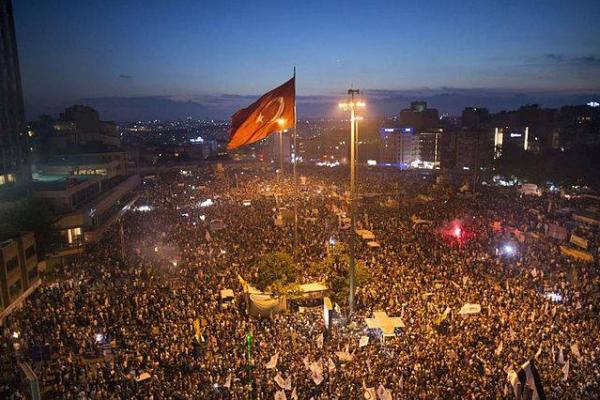
The Middle East Studies Center presents "Reckoning with Minority Community Rights in Turkey, and the Parallels to Black Lives Matter".
The Middle East Studies Centers brings you a panel of experts to provide an understanding of the diversity of religion in the Middle East region and a look at the Alevi community in Turkey, a sect related to Shi’i (Shi’ite) Islam and mystical traditions. The Sunni-Shi’i divide is only the proverbial tip of the iceberg of regional religious diversity and the complex social, economic, and political differences which were brought to light by the Gezi protests of 2013. The protests were famously motivated by urban development projects which ran rough-shod over common areas and green spaces but also by social policies which favored religion as part of national identity, and specifically Sunni Islam. The government framed the protests as Alevi in nature (Karaya-Stump, 2018) as the police targeted Alevi protesters. In reality protesters came from a variety of backgrounds, united against authoritarian government policies affecting all citizens.
Parallels that can be observed between the Gezi Park protests in Turkey and Black Lives Matter protests in the U.S. are striking. In Turkey, minorities have borne the brunt of urban development projects targeting what have been their traditional neighborhoods, and subsequently the brute force exacted on them during protests against these government-imposed building projects. Similarly in the U.S., Black Lives Matter and related protests call attention to racist institutions in the U.S. and react against police brutality targeting Black neighborhoods and individuals. Victims of police brutality galvanized movements in both countries. Berkin Elvan in Turkey and George Floyd in the U.S. became martyrs along with many others from their respective backgrounds and communities. May they Rest In Peace.
The presentation will be for a general audience but we will provide perspectives and information of interest to academics, journalists, and independent researchers, as well. After the presentation we will open the floor to a Q&A session. Audience members will then be able to share their knowledge and/or personal experience of these issues. We plan to have a meaningful conversation and will seek to create an atmosphere free from politicization, open to learning and understanding these issues more deeply. Panelists will include Professor Ayfer Karakaya-Stump (William and Mary University) and Professor Alam Payind (Director of the Middle East Studies Center at Ohio State University). Dr. Melinda McClimans (Assistant Director of the Middle East Studies Center at Ohio State University) will serve as moderator.
For more information: https://mesc.osu.edu/events/reckoning-minority-community-rights-turkey-and-parallels-black-lives-matter
